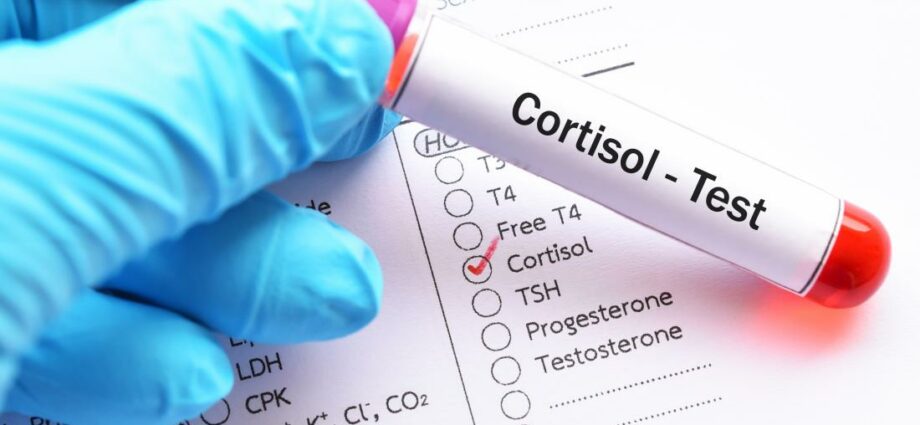Contents
Cortisol in the blood
Definition of cortisol
Le cortisol is a steroid hormone produced from cholesterol and secreted by glands above the kidneys (the adrenal cortex). Its secretion is dependent on another hormone, ACTH produced by the pituitary gland in the brain (ACTH for adrenocorticotropin).
Cortisol plays several roles in the body, including:
- The metabolism of carbohydrates, lipids and proteins: it helps regulate blood sugar by increasing glucose synthesis by the liver (gluconeogenesis), but also stimulates the release of lipids and proteins in most tissues
- Has anti-inflammatory reaction
- To regulate blood pressure
- To bone growth
- A stress response: Cortisol is often referred to as the stress hormone. Its role is to help the body cope, by mobilizing the energy necessary to nourish the muscles, the brain but also the heart.
Note that the level of cortisol varies depending on the time of day and night: it is highest in the morning and decreases throughout the day to reach its lowest level in the evening.
Why do a cortisol test?
The doctor orders a test of the level of cortisol in the blood to check for damage to the adrenal glands or pituitary gland. Cortisol and ACTH are often measured at the same time.
How the cortisol test works
The examination consists of a blood test, carried out in the morning between 7 a.m. and 9 a.m. This is when cortisol levels are highest and most stable. The medical staff in charge of the examination will draw venous blood, usually from the fold of the elbow.
Since cortisol levels fluctuate throughout the day, the test may be done multiple times to get a more accurate picture of average cortisol production.
The level of cortisol can also be measured in the urine (measurement of urinary free cortisol, especially useful for detecting hypersecretion of cortisol). To do this, urine must be collected in a container provided for this purpose over a period of 24 hours.
We will explain the procedure to you, which generally consists of collecting all the urine for the day (by storing it in a cool place).
Before undergoing tests (blood or urine), it is recommended to avoid any stressful situation or to exercise. The doctor may also ask to stop certain treatments that may interfere with the dosage of cortisol (estrogen, androgens, etc.).
What results can we expect from a cortisol test?
In the blood, the normal value of cortisol assessed between 7 a.m. and 9 a.m. is between 5 and 23 μg / dl (micrograms per deciliter).
In urine, the level of cortisol normally obtained is between 10 and 100 μg / 24h (micrograms per 24 hours).
High cortisol levels can be a sign of:
- Cushing’s syndrome (hypertension, obesity, hyperglycemia, etc.)
- a benign or malignant adrenal gland tumor
- acute infection
- capsular stroke, myocardial infarction
- or cirrhosis of the liver, or chronic alcoholism
On the contrary, a low level of cortisol can be synonymous with:
- adrenal insufficiency
- addison’s disease
- poor functioning of the pituitary or hypothalamus
- or be the consequence of prolonged corticosteroid therapy
Only the doctor will be able to interpret the results and give you a diagnosis (additional tests are sometimes necessary).
Read also : Our fact sheet on hyperlipidemia |










